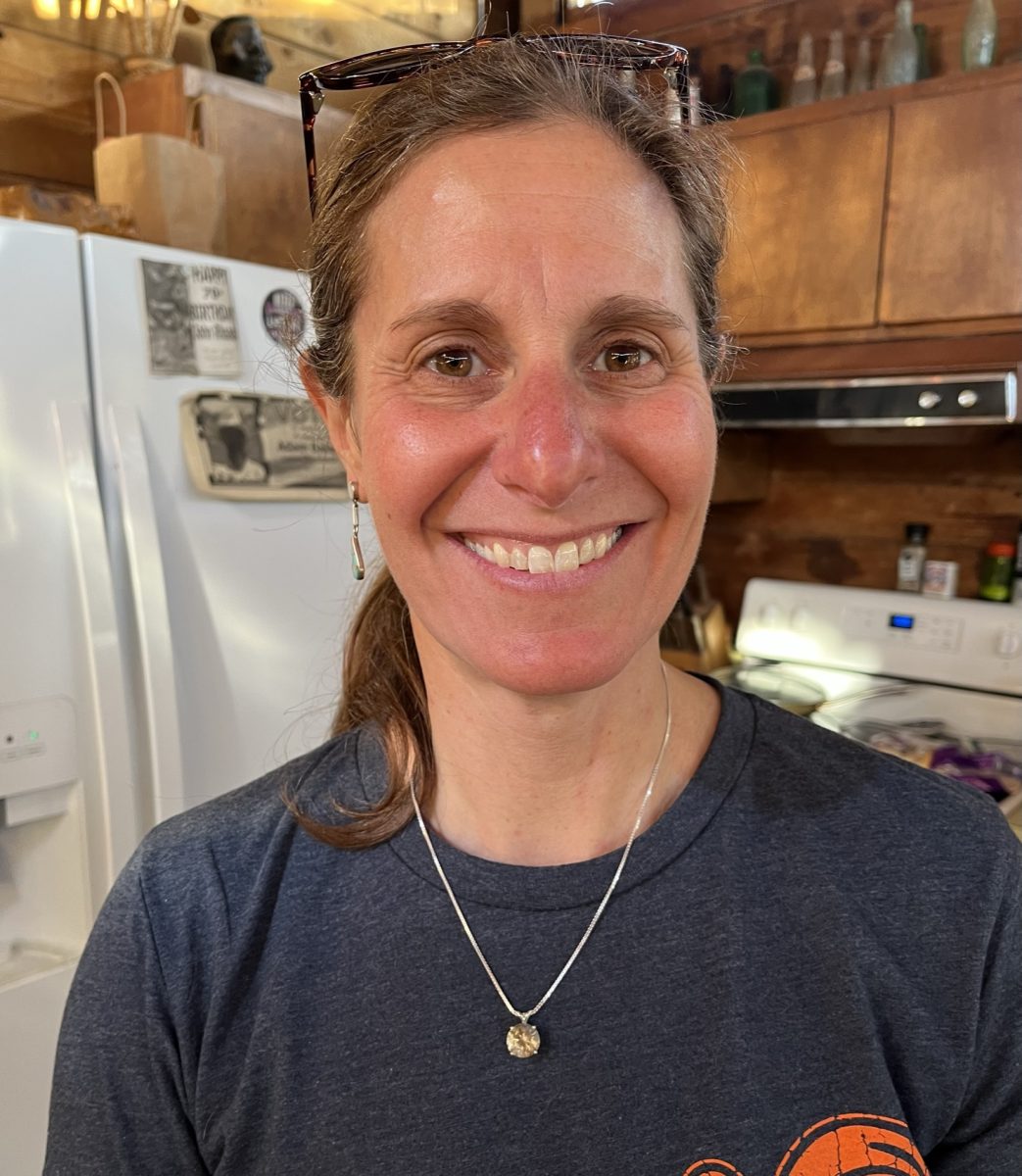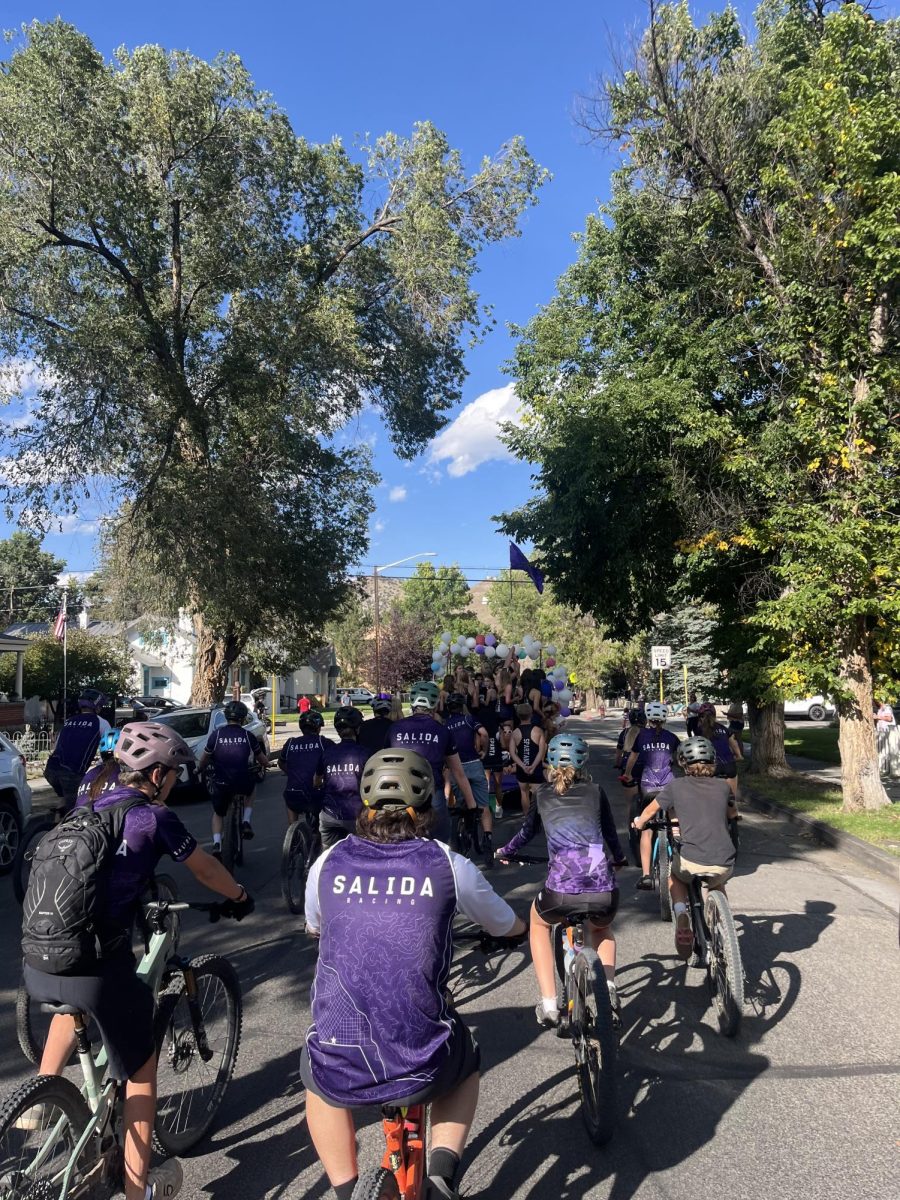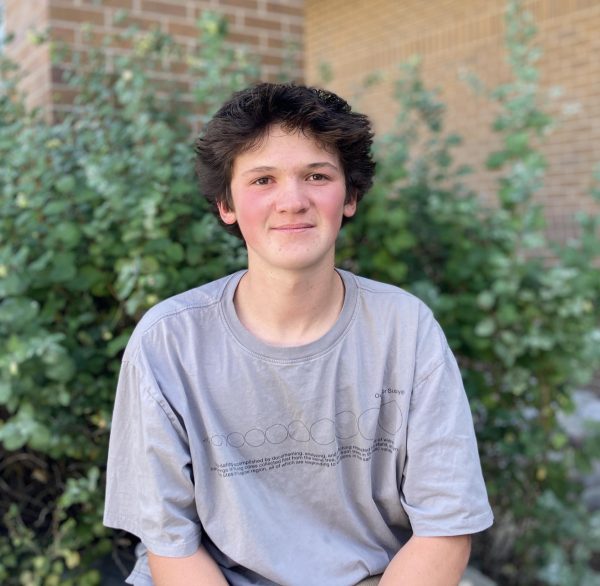The Salida High School theater department is preparing to bring an ambitious production to the stage this fall: Hadestown, a modern musical written in 2006 that reimagines the Greek tragedy of Orpheus and Eurydice. With its unique style and a cast of more than 30 students, the show promises to be one of the most exciting performances the school has staged in years.
The story of Orpheus and Eurydice is one of the oldest and most enduring myths in Western literature. Orpheus, a gifted lyrist and vocalist, journeys to the underworld in an attempt to rescue his beloved Eurydice, who was taken by Hades to the underworld. The tragic tale has been retold countless times throughout the centuries, but Hadestown gives it a modern voice. Blending folk music, operatic elements, and contemporary stagecraft, the production challenges both performers and audiences to experience the myth in a fresh and innovative way.
According to Andre Wilkins, a teacher at Salida High School and one of the directors of the show, the cast this year is one of the largest in recent memory. “We’re up to about 32, maybe 35 students,” he said. “We even have a couple of HEA [Horizons Exploratory Academy] students joining us, so the numbers are strong. It’s great to see so many young people excited about theater.”
If history is any indication, seats will be in high demand. Last year’s fall production of The Addams Family sold out every performance, and the spring play filled at least half to three-quarters of the auditorium each night. Still, Hadestown stands apart from the department’s past productions. Unlike a traditional musical that mixes spoken dialogue with songs, this show is considered an operetta—or, more specifically, a folk opera.
“There are a few spoken lines, but the majority of the story is sung,” Wilkins explained. “That changes how the story flows and how the performers engage with it. It’s demanding, but it’s also really powerful.” The format makes heavy use of harmonies, which has pushed the cast to strengthen their vocal skills. “We have a lot of strong singers this year,” Wilkins said. “Hearing them come together in harmony is something special. It’s not just one or two big voices carrying the show—the ensemble sound is what makes it really shine.”
Rehearsals began on the first day of school, giving the cast a head start on learning music, choreography, and staging. Even with weeks of practice under their belts, the process is rigorous. “Every actor has their own way of learning a role, but putting on a musical has so many moving parts,” Wilkins said. “There are sets to build, lights to program, microphones to manage. When we get into the final weeks, we’ll run the same six minutes over and over until every cue is nailed down. We don’t practice until we get it right—we practice until we can’t get it wrong.”
Students, too, are rising to the challenge of balancing demanding roles with their academic schedules. Long hours of rehearsals, memorization, and repetition are all part of the process. For many, it’s a chance to grow not just as performers but as collaborators. Theater productions at the school have a long history of drawing community support, and Hadestown looks to be no exception. With its ambitious score, meaningful story, and the enthusiasm of dozens of dedicated students, the show is shaping up to be a highlight of the year. For audiences, it offers not only an evening of entertainment but also a chance to see timeless myths brought to life in a way that feels like the legacy of something ancient and a brand new show all at once.
Tickets are expected to sell quickly once they go on sale, and the department encourages the community to come out and support the students who have been working tirelessly to bring Hadestown to the stage. The production will open on Thursday, November 14, at 7:00 p.m. Performances will continue on Saturday, November 15, with a matinee at 2:00 p.m. and the closing night show at 7:00 p.m. The community of Salida is called to come support our student productions, and see Hadestown in November.





